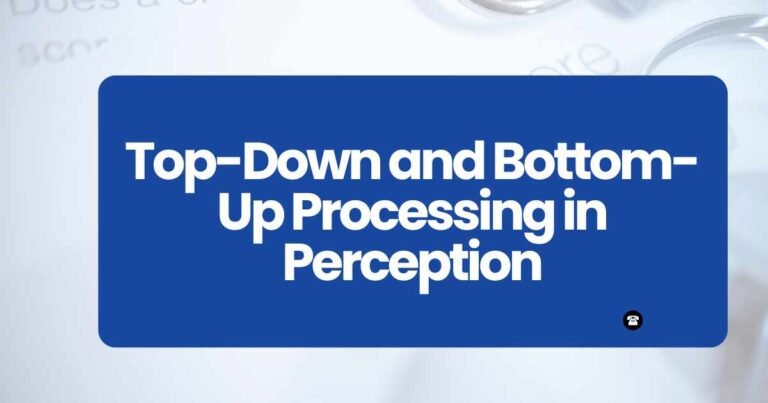Messiah Complex: Key Signs, Mental Impact & Recovery Guide

Introduction
The messiah complex is more than just a personality quirk—it’s a deeply rooted psychological condition that can impact both the person experiencing it and everyone around them. Whether it arises from grandiose delusions, unresolved trauma, or misguided altruism, individuals with a messiah complex often feel an intense, even compulsive, need to “save” others. This belief may come across as noble, but it frequently leads to burnout, damaged relationships, and even emotional exploitation. In this guide, we’ll uncover what truly lies behind the messiah complex, how to recognize it, and how it can be treated through evidence-based therapy and self-reflection.
Understanding the Messiah Complex: Core Characteristics
What Is the Messiah Complex?
The messiah complex—also referred to as the savior complex—is a psychological pattern where a person believes they are destined or obligated to rescue others, regardless of actual need or risk. It’s often fueled by a deep sense of responsibility and self-importance.
This belief can cause emotional dependency, manipulation, and imbalance in relationships. While not classified as a standalone diagnosis in the DSM-5, it frequently coexists with conditions like narcissistic personality disorder, bipolar disorder, or schizophrenia.
Key Signs and Behaviors
Recognizing the messiah complex early is vital. People with this mindset typically display:
- A constant urge to fix or rescue others
- Disregard for personal boundaries
- Feelings of moral superiority
- Emotional burnout and frustration when others reject their help
- Viewing others’ independence as failure
Psychological Roots and Triggers
- Unresolved childhood trauma: Individuals may feel the need to “make up” for past helplessness.
- Religious or cultural messaging: Over-glorifying savior roles can lead to internalized responsibility.
- Mental health conditions: Especially when involving delusions of grandeur or identity confusion.
- Low self-worth: The individual compensates by finding external validation through “helping.”
Mental Health Implications of the Messiah Complex
Grandiosity and Delusion
Many who struggle with the messiah complex believe they possess special insight or powers, even without training or experience. This can progress into full-blown grandiose delusions, especially in individuals with bipolar or psychotic disorders.
Identity Confusion
A major psychological cost of the messiah complex is loss of self-identity. These individuals struggle to define themselves outside of their savior role, often tying their entire self-worth to whether or not they’re “needed” by others.
Emotional Exhaustion
Being “on call” for others constantly wears down emotional resilience. Over time, this leads to burnout, depression, irritability, and deep resentment—ironically undermining the very relationships the person aims to save.
Relationship Strain
Loved ones may feel controlled, invalidated, or emotionally manipulated. Instead of fostering independence, the messiah figure may unknowingly encourage dependency or infantilization.
Case Studies and Real-Life Scenarios
Case 1: The Overbearing Parent
A mother who constantly micromanages her adult children’s lives—under the belief she knows what’s best—is driven not just by care, but by an internal need to feel irreplaceable.
Case 2: The Workplace Hero
An employee always steps in to solve others’ problems, often working overtime. While seen as helpful, their behavior masks deep insecurity and triggers resentment among coworkers.
Case 3: The Spiritual Guide
A man convinced he’s been “chosen” to lead others spiritually isolates himself from criticism, dismissing feedback as ignorance. He spirals into grandiosity, eventually damaging his own family connections.
Therapeutic Approaches to Address the Messiah Complex
Step-by-Step Treatment Framework
- Build awareness
Help the client recognize their thought patterns and motivations. - Validate the intention but challenge the behavior
Good intentions can coexist with harmful outcomes. - Redefine purpose
Explore meaning beyond rescuing others. - Encourage autonomy
Shift the focus from fixing others to supporting self-sufficiency.
Cognitive Behavioral Therapy (CBT)
CBT is especially effective in:
- Challenging distorted beliefs
- Restructuring cognitive assumptions
- Replacing “I must save them” thoughts with “They can grow on their own”
Reality Testing
In sessions, therapists can ask:
- “What happens if you don’t intervene?”
- “Can you truly control others’ outcomes?”
- “Is your help welcome or resented?”
These questions build critical thinking and self-awareness.
Mindfulness and Emotion Regulation
People with the messiah complex often experience anxiety, anger, or guilt. Mindfulness-based therapy helps reduce reactivity and teaches emotional self-regulation.
Identity Exploration Exercises
Through guided journaling, role-play, and values assessments, clients discover a healthier identity beyond being the savior. They learn to value relationships where support is mutual—not one-sided.
Complementary Approaches and Lifestyle Changes
Supportive Group Therapy
Connecting with others facing similar issues helps normalize experiences, reduce shame, and model healthier boundaries.
Family and Couples Counseling
This helps repair damaged trust and correct power imbalances. It also educates family members on how to set loving but firm boundaries.
Medication
If the messiah complex is linked to bipolar disorder, depression, or psychosis, psychiatric medication (e.g., mood stabilizers, antipsychotics) may be needed in conjunction with therapy.
Daily Coping Strategies
- Use a helping checklist: “Is my help needed? Is it healthy? Is it mutual?”
- Schedule time for self-care as a non-negotiable.
- Practice saying no with compassion.
- Keep a rescue diary to track savior behavior and its outcomes.
Comparison Table: Savior Complex vs. Healthy Helping
| Feature | Messiah Complex | Healthy Helping |
|---|---|---|
| Motivation | Driven by compulsion or identity | Driven by empathy and choice |
| Boundaries | Often ignored | Clearly defined |
| Emotional Response | Burnout, resentment, guilt | Satisfaction, balance |
| Expectation from others | Dependence or loyalty | Independence and respect |
| Reaction to rejection | Defensive or withdrawn | Accepting and understanding |
Long-Term Outcomes and Relapse Prevention
Healing from the messiah complex is not linear. People often relapse into old behaviors during stressful times. Long-term support and check-ins help maintain progress.
- Schedule monthly reflection sessions
- Continue therapy as needed
- Surround yourself with people who respect boundaries
- Celebrate non-intervention wins (when you let others figure things out)
Frequently Asked Questions (FAQs)
What causes the messiah complex?
It often stems from unresolved trauma, inflated self-worth, or underlying conditions like narcissistic personality disorder or bipolar disorder.
Is the messiah complex the same as narcissism?
Not always. While they can overlap, the messiah complex may arise from guilt, trauma, or over-identification with helping—not just ego.
Can the messiah complex be treated?
Yes. With therapy, self-awareness, and behavioral changes, individuals can manage or even overcome this pattern entirely.
Is medication always required?
Only if the complex is connected to diagnosable conditions like psychosis or bipolar disorder. Otherwise, therapy alone may suffice.
Can helping others still be healthy?
Absolutely. Helping is healthy when it’s reciprocal, respectful of autonomy, and doesn’t define your self-worth.
Conclusion: Letting Go of the Savior Role
The messiah complex may feel noble, but it can lead to emotional harm, strained relationships, and personal burnout. Understanding the deeper motivations behind this behavior is the first step to change. Therapy, self-reflection, and lifestyle adjustments allow individuals to transition from compulsive rescuers to emotionally balanced supporters.
Take the First Step
If you or someone you know struggles with this pattern, seek support. Professional guidance, group therapy, and boundary-setting skills can break the cycle—leading to more fulfilling, respectful relationships and a healthier sense of self.






